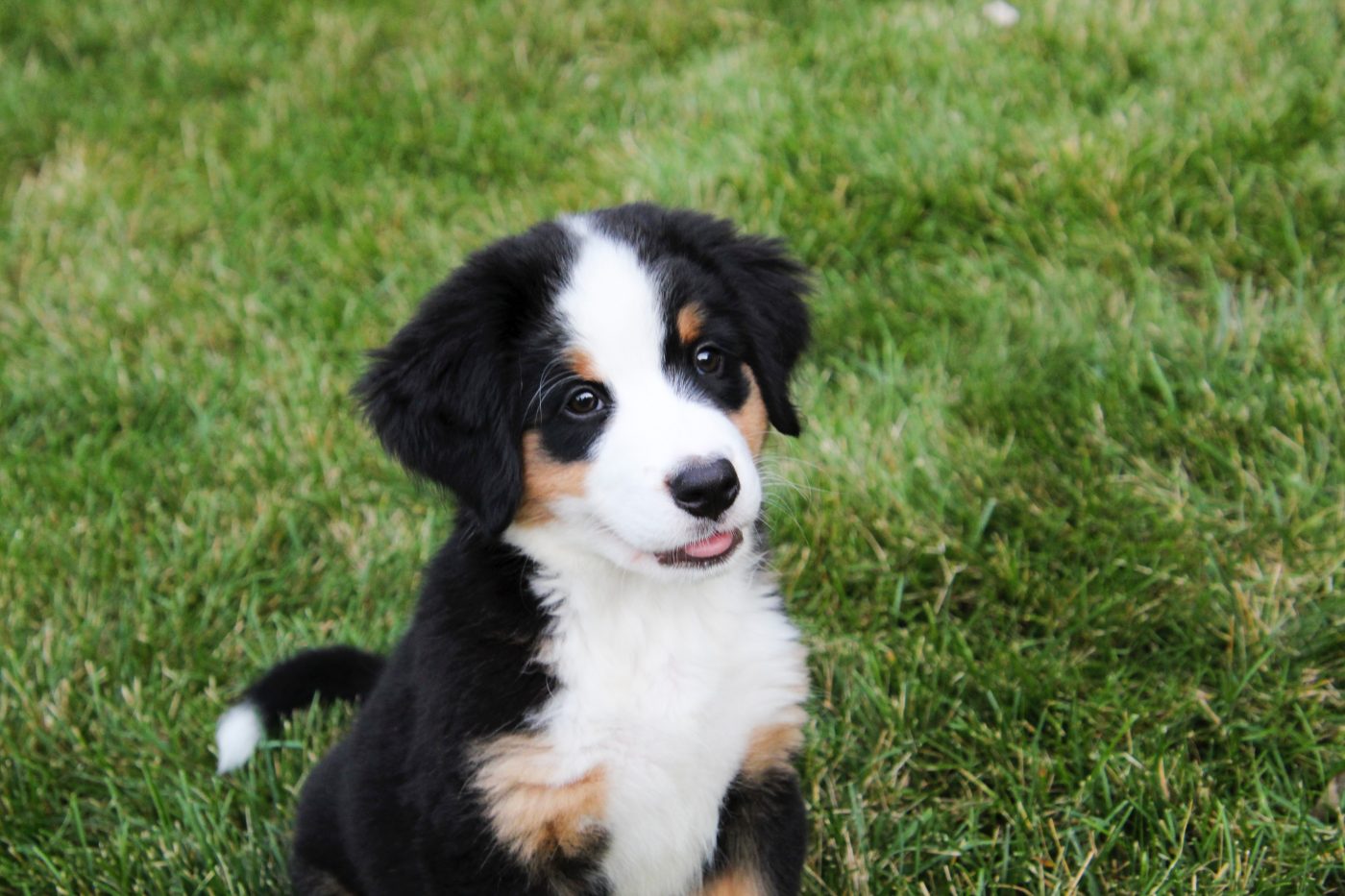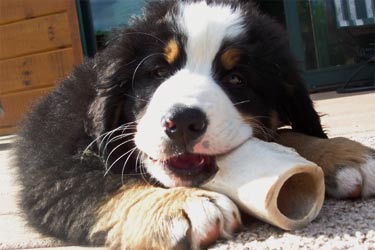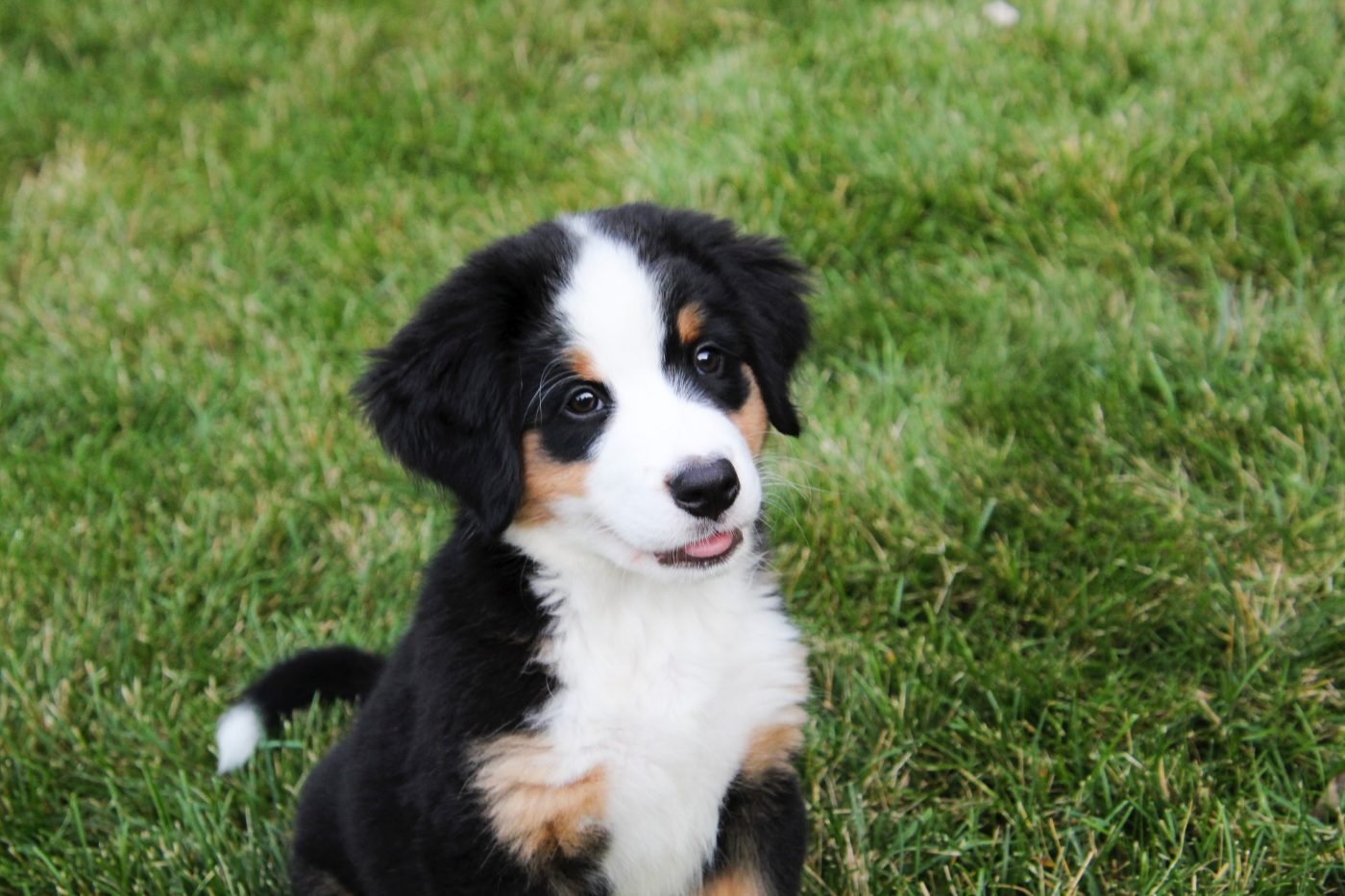So you’ve brought home a Bernese Mountain Dog puppy, and they are absolutely adorable. Those big paws, fluffy fur, and playful nature can melt anyone’s heart. But along with the cuteness, you might be experiencing the not-so-fun part: puppy biting. Don’t worry, this is completely normal, and I’m here to give you the lowdown on when those tiny teeth will start to ease up.
Keywords: when do Bernese Mountain Dog puppies stop biting
Okay, let’s address the biting situation. Bernese Mountain Dog puppies, like most puppies, tend to explore the world with their mouths. Those sharp little teeth can certainly leave their mark, but the good news is that this behavior doesn’t last forever.
As your furry friend grows, you’ll notice a gradual decrease in biting. By around four to six months of age, the biting should significantly decrease, thanks to their teething process and improved impulse control. However, it’s important to note that all puppies are different, so the timing may vary.
Remember, patience is key when it comes to puppy biting. Through consistent training, positive reinforcement, and providing appropriate chew toys, you can help your Bernese Mountain Dog puppy learn proper bite inhibition and transition into a well-behaved adult dog.
So hang in there, fellow puppy parent! The biting phase is just a temporary stage, and soon enough, you’ll have a loving and gentle Bernese Mountain Dog companion by your side.

When Do Bernese Mountain Dog Puppies Stop Biting?
Having a Bernese Mountain Dog puppy can be an exciting and joyful experience, but it can also come with its challenges. One of the challenges many owners face is dealing with their puppy’s biting behavior. Bernese Mountain Dog puppies, like all puppies, go through a teething phase where they explore the world with their mouths. However, it is important to understand when this behavior should start to subside and what steps you can take to address it. In this article, we will delve into the topic of when Bernese Mountain Dog puppies stop biting and provide valuable insights to help you navigate this phase of puppyhood.
Understanding the Teething Process
Like humans, dogs go through the teething process as their baby teeth are replaced by adult teeth. For Bernese Mountain Dog puppies, this process typically begins around 3 to 4 months of age and can last up to 7 months. During this time, puppies experience discomfort and itching in their gums, leading them to chew on objects and, unfortunately, sometimes on people. It is important to note that biting is a normal part of this process, but it should gradually decrease as the puppy’s adult teeth start to come in.
To help alleviate the discomfort of teething, provide your Bernese Mountain Dog puppy with appropriate chew toys that are specifically designed for teething puppies. These toys are made of softer materials that are gentle on the gums and can help redirect their biting behavior. Additionally, you can offer frozen treats or wet cloths for them to chew on, as the cold can provide relief to their sore gums. By providing alternatives for them to chew on, you can help redirect their attention away from biting you or your belongings.
Training and Socialization
Aside from the teething phase, puppy biting can also be a result of their natural instinct to explore and play. Bernese Mountain Dogs are known to be gentle and friendly, but like any breed, they need proper training and socialization to understand acceptable behavior. It is crucial to start training and socializing your Bernese Mountain Dog puppy from a young age to prevent excessive biting habits.
One effective technique to discourage biting is to use positive reinforcement training. Reward your puppy with treats, praise, and affection when they exhibit appropriate behavior, such as licking instead of biting. Conversely, withdraw attention or redirect their attention to a chew toy when they attempt to bite. Consistency is key in training, so make sure all family members and visitors are on board with the same approach.
In addition to training, adequate socialization is vital for your Bernese Mountain Dog puppy to learn proper interactions with humans and other animals. Arrange playdates with other friendly and vaccinated dogs, enroll them in puppy kindergarten classes, and expose them to a variety of environments, sounds, and stimuli. The more exposure they have, the better equipped they will be to handle different situations without resorting to biting.
Determining When the Biting Subsides
While every Bernese Mountain Dog puppy is different, it is generally expected that their biting behavior will gradually decrease by the time they reach 6 to 7 months of age. This is when their adult teeth have fully come in, and their teething phase is behind them. However, it is essential to note that some puppies may take longer to outgrow their biting habits, especially if training and socialization have not been consistently implemented.
If your Bernese Mountain Dog puppy continues to exhibit excessive biting behavior beyond 7 months of age, it may be necessary to consult with a professional dog trainer or behaviorist. They can assess the underlying causes of the behavior and provide tailored guidance to address it effectively. Remember, patience and persistence are key when it comes to training and behavior modification.
Additional Tips for Managing Puppy Biting
Now that we have covered when Bernese Mountain Dog puppies typically stop biting and how to address the behavior, let’s explore some additional tips to help you effectively manage this phase:
1. Use redirection techniques
When your puppy starts to bite, redirect their attention to an appropriate chew toy or bone. This helps them learn that biting objects is acceptable, while biting people is not.
2. Provide regular exercise and mental stimulation
A tired puppy is less likely to engage in excessive biting. Make sure to provide plenty of physical exercise and mental stimulation through activities like walking, playing fetch, and puzzle toys.
3. Teach the “leave it” command
Teaching your puppy the “leave it” command can be extremely helpful in curbing biting behavior. This command teaches them to let go of objects or refrain from biting when directed.
4. Avoid rough play
While it may be tempting to engage in rough play with your Bernese Mountain Dog puppy, remember that it can encourage biting behavior. Stick to gentle play and avoid physical games that may trigger their instinct to bite.
5. Seek professional help if needed
If you are experiencing difficulty in managing your puppy’s biting behavior on your own or if the behavior is excessive and persistent, do not hesitate to seek professional help. A certified dog trainer or behaviorist can provide personalized guidance and support.
When Do Bernese Mountain Dog Puppies Stop Biting with Health Issues?
While most Bernese Mountain Dog puppies stop biting by the time they reach 6 to 7 months of age, there might be cases where biting behavior persists due to underlying health issues. In such situations, it is crucial to consult with a veterinarian to rule out any potential medical problems.
Health conditions such as dental problems, mouth infections, or injuries can cause discomfort and lead to continued biting. If your puppy shows signs of pain, inflammation, or refuses to chew on appropriate toys despite their teething phase being over, a thorough examination by a veterinarian is recommended. Treating any underlying health issues can help alleviate the biting behavior and improve your puppy’s overall well-being.
When Do Bernese Mountain Dog Puppies Stop Biting with Proper Training?
With consistent training and positive reinforcement, Bernese Mountain Dog puppies can learn to significantly reduce biting behavior by the time they reach 6 to 7 months of age. Proper training involves teaching them appropriate chewing habits, socializing them with other dogs and humans, and reinforcing positive behaviors.
Remember that every puppy is unique, and the timeline for when they stop biting can vary. Patience, consistency, and understanding are key during this phase. By providing appropriate chew toys, implementing positive reinforcement training techniques, and ensuring proper socialization, you can help your Bernese Mountain Dog puppy develop into a well-behaved and gentle adult.
Key Takeaways: When Do Bernese Mountain Dog Puppies Stop Biting
- Bernese Mountain Dog puppies usually stop biting around 6 to 8 months old.
- Consistent training and positive reinforcement can help reduce biting behavior.
- Providing appropriate chew toys can redirect the puppy’s biting instinct.
- Early socialization with other dogs and people can also help minimize biting.
- Consulting with a professional dog trainer or behaviorist may be beneficial for persistent biting issues.
Frequently Asked Questions
Have you recently adopted a Bernese Mountain Dog puppy and want to know when they will stop biting? Here are answers to some common questions about when Bernese Mountain Dog puppies outgrow their biting phase.
At what age do Bernese Mountain Dog puppies typically stop biting?
Most Bernese Mountain Dog puppies stop biting within their first year of life. However, this can vary from dog to dog. Some puppies may outgrow their biting habits by around six months of age, while others may continue biting until they are closer to a year old. It’s important to remember that all puppies go through a teething stage that can contribute to their biting behavior. Providing appropriate chew toys and teaching them bite inhibition can help redirect their biting energy.
Patience and consistent training are key when it comes to teaching a Bernese Mountain Dog puppy to stop biting. It’s also important to provide plenty of mental and physical stimulation through exercise, play, and training, as this can help reduce their desire to nip or bite. If biting persists beyond their first year, consulting a professional dog trainer or behaviorist may be beneficial.
How can I train my Bernese Mountain Dog puppy to stop biting?
Training a Bernese Mountain Dog puppy to stop biting requires consistency, positive reinforcement, and redirecting their behavior. When your puppy nips or bites, let out a high-pitched yelp or say “ouch” to mimic the response of another puppy. This helps them understand that biting hurts. Immediately redirect their attention to a suitable chew toy or bone, providing an alternative outlet for their chewing needs.
Avoid using punishment-based training methods, as these may instigate fear or aggression in your puppy. Instead, reward them with praise and treats when they engage in appropriate chewing behavior. Consistently reinforce the message that biting humans is not acceptable while offering alternative ways for them to satisfy their chewing instincts. As they grow older, their biting should gradually decrease as long as you are consistent in your training approach.
Is it normal for Bernese Mountain Dog puppies to bite during play?
Yes, biting during play is a normal behavior for Bernese Mountain Dog puppies. Puppies explore their world through their mouths and engage in play by gently nipping or mouthing. This behavior helps them develop their social skills and learn boundaries. However, it’s important to teach them appropriate play behavior and set boundaries to prevent them from becoming too rough or aggressive.
When your Bernese Mountain Dog puppy bites during play, follow the same training techniques mentioned earlier. Let out a yelp or say “ouch” to communicate that their bite was too hard, then redirect their attention to a toy or bone. Consistency in training and teaching bite inhibition will help them learn how to play without causing harm.
Should I be concerned if my Bernese Mountain Dog puppy’s biting behavior persists?
If your Bernese Mountain Dog puppy’s biting behavior persists beyond their first year of life or becomes aggressive, it’s important to seek professional help from a trainer or behaviorist. Persistent biting or aggression could indicate a deeper issue that requires specialized guidance. A professional can assess the situation, offer targeted training techniques, and address any underlying factors that may be contributing to the behavior.
Remember that every dog is unique, and some may take longer to outgrow their biting habits. Patience and consistency in training are crucial, but if you feel overwhelmed or unable to handle the situation on your own, seeking professional assistance is always a wise choice.
Is it advisable to use rough play or wrestling with my Bernese Mountain Dog puppy?
No, it is not advisable to engage in rough play or wrestling with your Bernese Mountain Dog puppy. Rough play can encourage overly aggressive behavior and can lead to unintentional harm. Puppies may not always understand the difference between play and real aggression, so it’s important to set clear boundaries from the beginning.
Instead, focus on teaching your puppy appropriate play behaviors by using gentle, interactive toys and positive reinforcement techniques. Encourage activities such as fetch, hide-and-seek, or puzzle toys that stimulate their mind and body in a positive way. This will help them develop good manners and discourage rough play tendencies.

Summary
Bernese Mountain Dog puppies stop biting when they reach around six to eight months of age. During this time, it is important to provide them with consistent training, socialization, and redirection techniques to encourage positive behavior.
Teething is a common reason why puppies bite, so make sure to provide appropriate chew toys to satisfy their chewing needs. Remember to never punish or yell at your puppy for biting, as this can lead to fear or aggression. Instead, use positive reinforcement and reward them when they display good behavior. With patience and consistency, you can help your Bernese Mountain Dog puppy learn to curb their biting habits and become a well-behaved adult dog.
